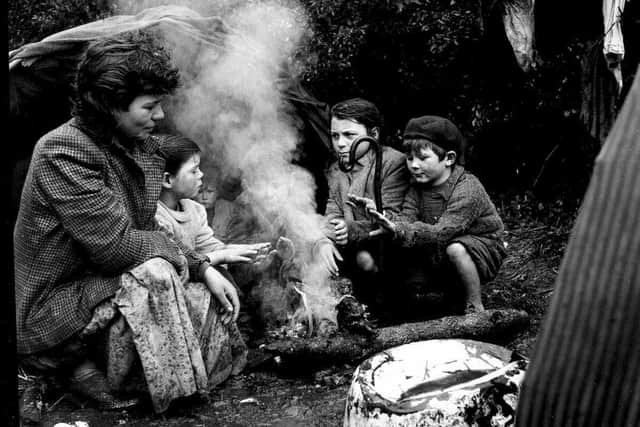State documents to be searched for evidence relating to Scotland's 'Tinker Experiment'
The Scottish Government wants to shed new light on the so-called “Tinker Experiment” by unearthing key documents covering its implementation and scale.
Members of the gypsy traveller communities will also be invited to share their stories of how the scheme – which some campaigners have likened to “cultural genocide” – impacted on their lives.
Advertisement
Hide AdAdvertisement
Hide AdThe experiment, which ran between the 1940s and 1980s and was supported by successive UK governments and Scottish councils, attempted to strip away the nomadic lifestyle of travellers, providing rudimentary and often cramped huts for people to live in. Families were reportedly threatened with having their children taken away and put into care if they did not take up the offer.


There have been repeated calls for a formal apology. Shamus McPhee, who grew up on the Bobbin Mill site in Pitlochry, where he initially lived in a prefabricated World War Two-style Nissen hut with no electricity, previously told The Scotsman the scheme had “decimated” life chances.
Last year, ministers announced independent research would be commissioned into the experiment. Documents have now been published showing they want to establish a timeline of key events, as well as identifying any available records on decisions made by government departments – especially the pre-devolution Scottish Office – and the roles of institutions which collaborated in the scheme, including councils and the Church of Scotland.
Ministers also want researchers to estimate the scale of the policy – including the number of people affected – and the locations of sites across Scotland.
The documents add: “In addition to the forced housing in sub-standard sites across Scotland, these policies may have also resulted in the forced removal of children from gypsy/traveller communities. While it is envisaged that this research will predominantly focus on the housing aspect, the contractor will be also be required to report on any instances of forced adoption identified through this research.”
The research will involve digging into material covering the period from 1900 to 1990, including Scottish Office and other government records, papers held by councils and the Kirk, newspaper articles, letters, photographs and diaries.
Ministers are also commissioning related research to enable members of the gypsy traveller communities to “share their lived experiences of events arising from the implementation of these policies”. Documents add: “This could involve the sharing of experiences or stories. Some contributors may wish to share copies of photographs, paintings, letters and diaries to further illustrate their accounts.”
The two contracts have a combined value of around £50,000, and final reports are due in January 2024.
Advertisement
Hide AdAdvertisement
Hide AdEqualities minister Christina McKelvie said: “We are commissioning independent research to improve understanding of historic 20th century policies targeted at gypsy/traveller communities in Scotland. The research aims to establish a timeline of key events and decisions, and ensure members of the communities have the opportunity to share their experiences and the impacts of these policies.”
Davie Donaldson, a Scottish traveller and campaigner, previously called for a “full truth and reconciliation commission”, telling The Scotsman: “I think it’s crucial the Scottish Government recognises the real impact that the experiments had on not only the victims and the survivors of the Tinker Experiment but on the generation that came afterwards, in the form of cultural trauma.”
Comments
Want to join the conversation? Please or to comment on this article.
